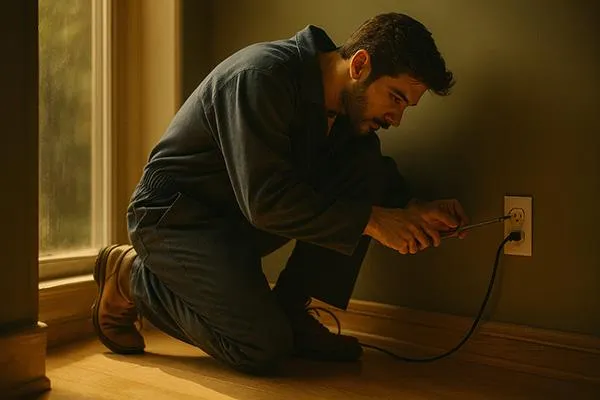
What If Hard Work Is What Makes Us Happy?
What If Hard Work Is What Makes Us Happy?
(And We’ve Just Forgotten How to Feel It)
Most people assume happiness comes from ease. From rest. From freedom from effort.
But what if that’s not the full story?
What if - underneath all the progress, the tools, the AI - we still crave a kind of effort? Not struggle. Not burnout. But meaningful resistance. The kind that shapes us.
This isn’t about glorifying hard work for its own sake. Or rejecting modern comforts. It’s simply asking: what if being stretched, moved, and needed is quietly essential to our wellbeing?
And what happens to us - and to our collective psyche - when we slowly strip that away?
We Weren’t Made for Frictionless Ease
Human beings evolved through motion, problem-solving, and adaptation. We didn’t just survive resistance - we grew through it.
Modern life offers endless convenience, but it also erodes the natural feedback loops we once depended on. The tension and release of effort and rest. The deep sigh that comes after building, lifting, fixing, solving.
In nature, nothing thrives without resistance.
Muscles atrophy when unused. Minds stagnate when unchallenged.
The same is true of meaning.
Our bodies and minds were made to move, to engage, to meet life. Sedentary ease, though seductive, slowly disconnects us from something primal: the joy of being involved.
The Goldilocks Zone of Effort
Psychologists talk about flow and eustress - the positive kind of stress that arises when we’re challenged just enough.
We don’t need to be overworked. But we do need something to work on. A puzzle. A purpose. A way to move forward.
Whether it’s crafting, training, repairing, cooking, or caregiving - progress feels good. Especially when it’s earned.
We are wired to enjoy growth, not ease.
Satisfaction isn’t found in doing nothing - but in doing something that matters.
In this sense, "hard work" doesn’t have to mean pain. It can mean immersion. Investment. A felt sense of presence. And when it aligns with something meaningful, it can even feel like joy.
The Electrician on the DLR
A few weeks ago, I was on London’s monorail system - the DLR. Two electricians were standing nearby, chatting about job sites, safety checks, and weekend plans.
Then one of them mentioned his pay: £1,900 a month, after tax. Not enough to live comfortably in London. He was thinking of moving further out - but that would increase his commute time and costs.
And I couldn’t help but wonder:
Why is this skilled, technical, physical job paid less than a marketing role that might earn £50k a year?
Especially when that marketing job is probably two years away from being replaced by AI. And his trade? Likely safe for at least a decade.
This isn’t just about economics. It’s about value. About what we choose to honour. About how our systems reflect - or ignore - human contribution.
If we’re not careful, we risk losing the work that actually holds society together.
Could We Choose Something Different?
This isn’t a policy paper. It’s not a roadmap. It’s a question:
Could society be different?
What if we didn’t treat physical or service work as "less than"? What if care work, labour, trade, and hands-on contribution were paid the same as back-office analytics or digital ops?
Would more people choose to do it? Would there be less stigma around these roles? Would we be healthier - mentally and physically - if more of us were invited into that kind of purposeful effort?
And in a world leaning so heavily into automation, do we even know what we’re outsourcing anymore?
Not just tasks.
But meaning.
The “Soul” of Effort
This isn’t about rejecting progress. AI can and should play a role in easing the burden of physically harmful or logistically impossible jobs.
But let’s not assume ease is always better.
There’s a difference between relief and restoration.
Between convenience and connection.
Between having nothing to do - and doing something that makes us feel whole.
For many of us, happiness isn’t found in escape. It’s found in engagement. In moving our bodies. In being of service. In solving something real. In showing up for something that matters.
Being True to Ourselves
Maybe this is what it means to be true to yourself:
Not to chase status or softness, but to follow the thread of what feels real. Alive. Needed.
Not to work harder.
But to work more honestly.
Not to aim for happiness.
But to allow it to emerge, downstream of effort, engagement, and meaning.
Before we let AI do it all for us, maybe we pause. Maybe we reflect.
What makes you feel strong?
What makes you feel here?
What makes you feel like you?
